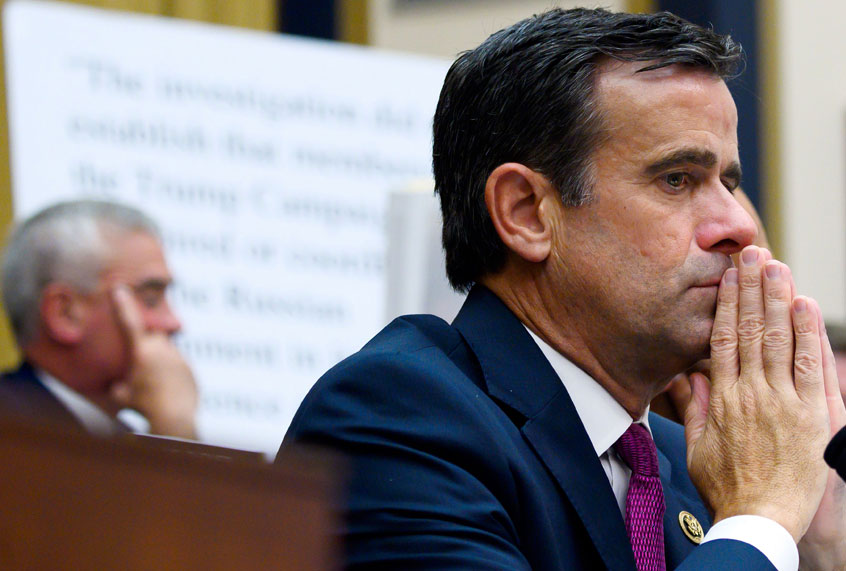President Donald Trump picked Republican Rep. John Ratcliffe of Texas to become the next director of national intelligence for no other reason, it seems, than that he liked the congressman’s aggressive questioning of former Special Counsel Robert Mueller during the public hearing on the Russia investigation. The president has said he wants Ratcliffe to “rein in” the intelligence community which has “run amok” — which most likely means officials tell him things he doesn’t like to hear.
Ratcliffe, then, could be a soothing ally for the president atop the U.S. intelligence apparatus. But it increasingly seems Ratcliffe doesn’t have the confidence of senators who will be key to his nomination.
In a new report Thursday from the Washington Post’s Shane Harris and Greg Miller, the leaders of the Senate Intelligence Committee declined to express support for the nominee:
Sen. Richard Burr (R-N.C.), the chairman of the Senate Intelligence Committee, told reporters that he would reserve judgment until the White House formally nominates Ratcliffe.
“When he’s nominated and we do an investigation, I’ll be happy to comment on what I think his qualifications are,” Burr said.
Sen. Mark R. Warner (D-Va.), the committee’s vice chair, said that Ratcliffe had less experience than any previous nominee for the position and that he was troubled by reports that Ratcliffe had exaggerated his involvement in terrorism cases when he was a federal prosecutor in Texas.
“I want to give Mr. Ratcliffe the chance to explain himself,” Warner said. “If this guy has even had to take that very thin résumé and pad it, that would be clearly disqualifying.”
The reference to résumé padding refers to reports that found that Ratcliffe — at best — stretched the truth with regards to his role in terrorism prosecutions.
Senate Majority Leader Mitch McConnell’s own comments about the Texas lawmaker hardly expressed strong confidence in the nominee, either.
“I haven’t met him yet. I look forward to meeting with him,” McConnell said. “Generally speaking, I would, you know, lean toward the president’s nominees. And I’d rather not address that until I’ve actually had a chance to meet him and discuss his background and qualifications.”
The rest of Harris and Miller’s report is pretty damning about Ratcliffe’s brief tenure on the House Intelligence Committee, which is his primary qualification for the new job.
The report found that other members consider him “relatively disengaged” with the committee’s work and that he is “known for brief appearances at the weekly business meetings and hearings that the panel often conducts behind closed doors.” Officials working in the intelligence community are reportedly unfamiliar with him, and he hasn’t gone on trips usually undertaken by committee members to acquaint themselves with the United States’ overseas spy operations.
All these signs point to serious trouble ahead for his nomination — and he would hardly be the first Trump nominee to flounder and withdraw. Stephen Moore and Herman Cain backed out of nominations for the Federal Reserve after they whithered under close scrutiny. Trump’s pick to lead the Pentagon, Patrick Shanahan, withdrew after his troubled family history came to light. And Ronny Jackson, who had been the White House doctor, withdrew from consideration to be the Veterans Affairs secretary after allegations of his potential professional misconduct arose.
But Ratcliffe may yet survive — other Trump nominees have persisted through the confirmation process despite serious challenges and objections. It just depends whether the Republican Senator’s concerns about the nominee are weighty enough to force them to tell Trump something he doesn’t want to hear.


